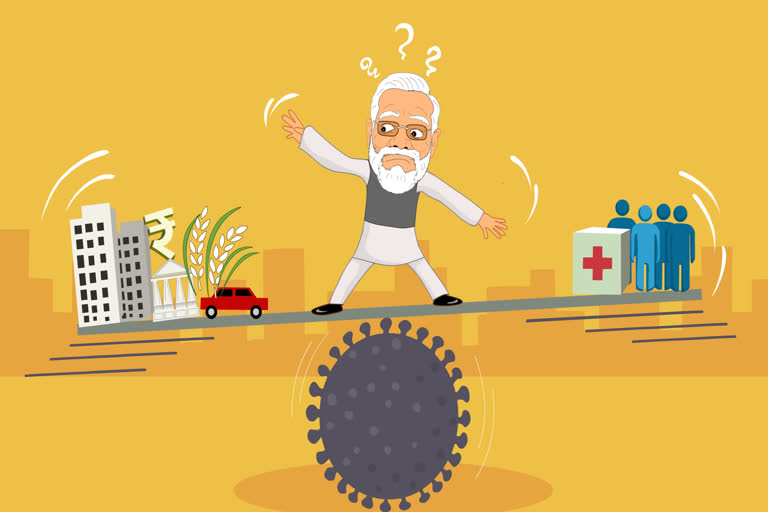New Delhi: The recent increase in the number of confirmed Covid-19 cases in both India and the world comes at a time when the countries just started to relax lockdown measures to revive the economy. In India, the Modi government started to unlock the economy from June 8 after five rounds of lockdown between March 5 and June 7. The unlock-measures led to opening of the economy and increase in revenue collection but were also accompanied by a steady rise in the Covid-19 cases. In June, India’s GST collection almost touched the pre-Covid level but the number of confirmed cases also went up from 2 lakh to 6 lakh during the same period.
Last month, the World Health Organization had warned the countries to relax the lockdown measures with extreme caution as it may lead to a possible resurgence in the Covid-19 infections.
Some economists have also expressed the doubts over the efficacy of unlocking measures in reviving the economy saying that economy cannot be revived unless medical science finds an answer to the novel coronavirus. The highly infectious virus has killed more than 17,400 people in the country and over 5,18,000 people worldwide.
“Scientific development which should come for dealing with the Coronavirus is a different issue. But in the meanwhile as we face more and more number of cases coming up, it's a hard trade-off between dealing with the Corona and dealing with the livelihood of the people,” said R Gandhi, former Deputy Governor of the Reserve Bank of India.
“It's a hard choice,” he said in response to a question by ETV Bharat.
The number of confirmed Covid-19 cases in the country has already crossed the mark of 6,00,000, the fourth highest in the world after the USA (27,31,000), Brazil (14,10,000) and Russia (6,54,000), according to the worldometer (www.worldometers.info), which tracks the data.
In late March, Prime Minister Narendra Modi’s government imposed one of the most stringent nationwide lockdown anywhere in the world to slowdown the community spread of the virus. However, the lockdown also brought the economic activity in the country to a grinding halt.
The GST collection data released on Tuesday revealed the extent of loss to the businesses during the lockdown period. The gross GST collection in the month of April came down to Rs 32,294 crores in comparison with Rs 1,13,866 crores collected during the same month last year, a decline of 81,572 crores or 72%.
However, as the government started to relax the prohibitory measures, the collection showed improvement, going up to Rs 62,009 crores in May and Rs 90,917 crores in June.
Read more:India's GDP may contract by 6.4% in FY21: Report
The June GST collection is just down by 9% in comparison with the same month last year which shows economic activity is gradually returning to pre-Covid levels.
